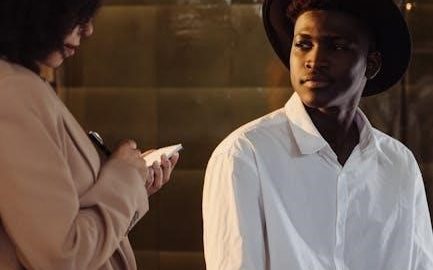The F1 visa interview is a critical step for international students seeking to study in the U.S. This guide provides updated questions and answers for 2024, helping applicants understand and prepare effectively for their interviews, ensuring a smooth process and higher chances of approval.
Understanding the Importance of F1 Visa Interviews
The F1 visa interview is a pivotal step in the student visa process, serving as a gateway for international students to pursue higher education in the U.S. It allows visa officers to assess an applicant’s credibility, educational goals, and intentions to return to their home country after completing studies. A successful interview demonstrates a clear understanding of the program, financial stability, and genuine intent to comply with visa regulations. As competition for admissions and visas grows, understanding the significance of this interview becomes crucial. Proper preparation ensures applicants can articulate their plans effectively, increasing the likelihood of approval and making their academic aspirations attainable.
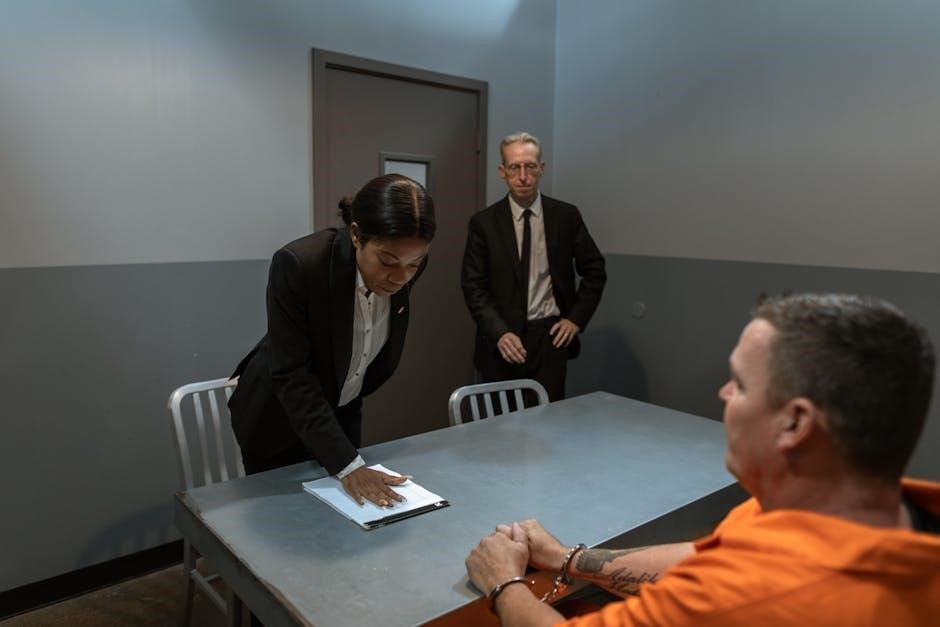
Overview of the F1 Visa Process in 2024
The F1 visa process in 2024 involves several structured steps, beginning with admission to a SEVP-approved institution, followed by the issuance of the I-20 form. Applicants must then pay the SEVIS fee and complete the DS-160 form before scheduling an interview at a U.S. embassy or consulate. The interview itself is a critical component, where applicants are assessed for their academic intentions, financial stability, and ties to their home country. In 2024, the process remains largely consistent, with continued emphasis on demonstrating clear educational goals and the ability to support oneself financially. Timely preparation and understanding of the process are essential to navigate the requirements successfully and secure the F1 visa.
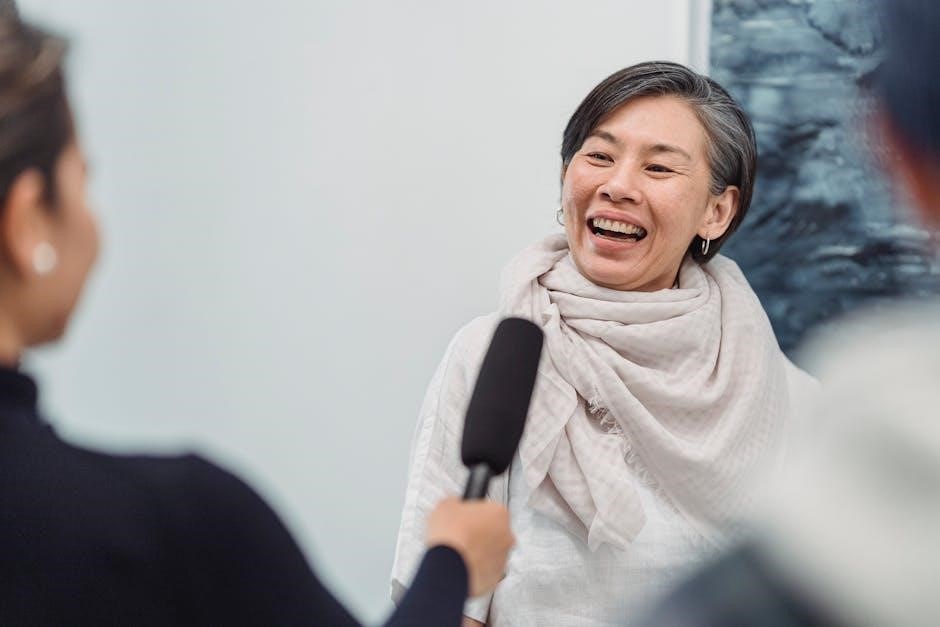
Common F1 Visa Interview Questions and Answers
This section outlines frequently asked F1 visa interview questions and provides detailed answers, covering academic plans, financial support, post-graduation intentions, and ties to your home country.
Questions About Academic Background and Goals
Visa officers often ask about your academic history, such as your field of study, reasons for choosing a specific program, and how it aligns with your career aspirations. Be prepared to discuss your undergraduate degree, relevant coursework, and any work experience. They may also inquire about your future goals, such as how the U.S. program will help you achieve them. It’s crucial to demonstrate a clear understanding of your academic and professional objectives. Highlight how your chosen program is the best fit for your skills and interests. Practice explaining your long-term plans and how they connect to your studies in the U.S. This shows commitment and a well-thought-out plan.
Questions About Financial Situation and Sponsorship
Visa officers will ask about your financial stability to ensure you can cover tuition, living expenses, and other costs. Be ready to explain your sources of funding, such as scholarships, personal savings, or sponsorship from family or organizations. You may need to provide details about your sponsors, including their relationship to you and their financial capacity. Discussing your awareness of estimated expenses and how you plan to manage them is also common. Ensure your answers align with the documents you provide, such as the I-20 form, bank statements, and affidavits of support. Clarity and consistency in explaining your financial situation are key to demonstrating your readiness to support yourself in the U.S.
Questions About Post-Graduation Plans
Visa officers often inquire about your plans after completing your studies to assess your intent to return home. They may ask about your career goals, how your studies align with future aspirations, or if you intend to work in your home country. Be prepared to explain how your chosen program will help you achieve these objectives. Discussing specific job roles, industries, or even plans to start your own business can demonstrate clarity. Highlighting how your education will benefit your home country shows a strong commitment to returning. Providing a clear and realistic vision of your post-graduation plans can strengthen your case for visa approval.
Questions About Ties to Home Country
Visa officers often ask about your ties to your home country to ensure you intend to return after completing your studies. They may inquire about family, job opportunities, or property in your homeland. Be prepared to explain how these connections will bring you back. Highlighting strong family bonds, employment offers, or cultural commitments can demonstrate your intent to return. Discussing future plans that involve your home country, such as working for a local company or contributing to your community, can also strengthen your case. Being specific about these ties will help reassure the officer of your intentions to return, aligning with visa requirements and improving your chances of approval.
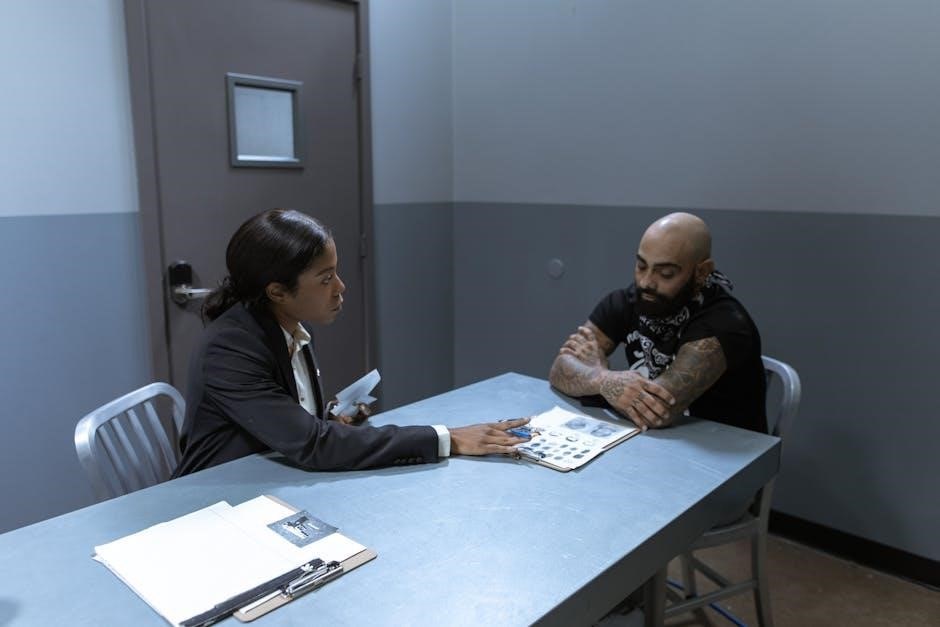
Preparing for the F1 Visa Interview
Thorough preparation is key to a successful F1 visa interview. Research the college, practice mock interviews, and understand the visa officer’s perspective to increase approval chances.
Researching the College or University
Researching the college or university is a vital part of F1 visa interview preparation. Understanding the institution’s academic programs, faculty, campus life, and support services demonstrates genuine interest and preparedness. Applicants should review the college’s website, course catalog, and student testimonials to gain insights into their chosen program. This knowledge helps answer questions confidently, showcasing how the institution aligns with their academic and career goals. Additionally, understanding the college’s unique offerings, such as research opportunities or internships, highlights enthusiasm and commitment. Thorough research not only aids in answering questions but also proves the applicant’s seriousness about attending the institution, making a positive impression on the visa officer.
Practicing Mock Interviews
Practicing mock interviews is an essential step in preparing for the F1 visa interview. It helps applicants become familiar with the question-and-answer format and builds confidence in articulating their thoughts clearly. Mock interviews simulate real-life scenarios, allowing students to practice responses to common questions about their academic background, financial situation, and post-graduation plans. Using resources like sample questions from 2024 guides or online tools, applicants can refine their answers and improve their delivery. Additionally, seeking feedback from mentors or peers during these sessions can highlight areas for improvement. Regular practice ensures that applicants are well-prepared to address any concerns the visa officer may have, showcasing their readiness to study in the U.S.
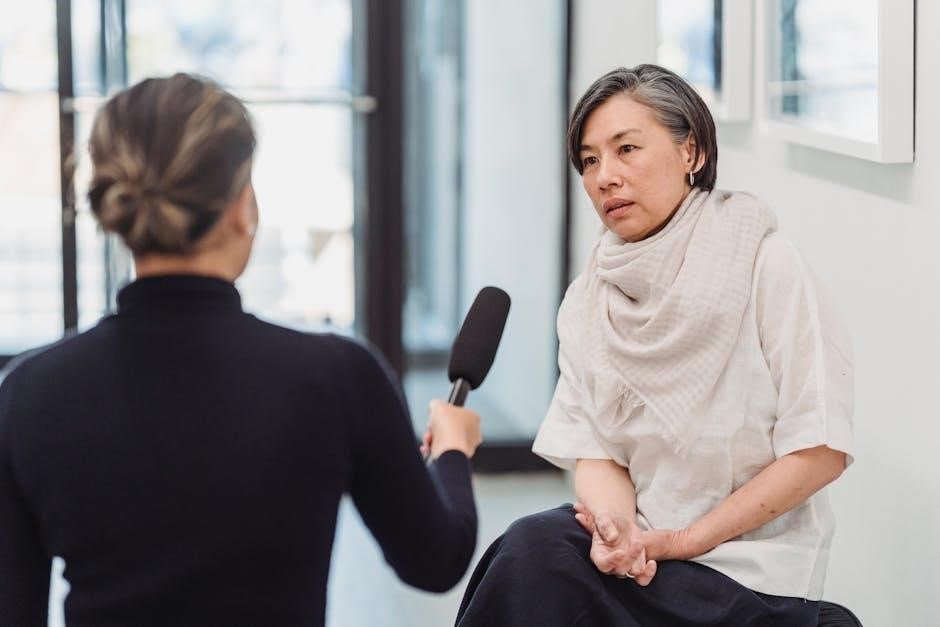
Understanding the Visa Officer’s Perspective
Understanding the visa officer’s perspective is crucial for a successful F1 interview. Their primary goal is to assess whether you meet the visa requirements, including your academic qualifications, financial stability, and genuine intent to study in the U.S. They also evaluate your ties to your home country to ensure you plan to return after completing your studies. By anticipating their concerns, such as potential immigration risks or financial discrepancies, you can address them proactively; Being honest, confident, and well-prepared demonstrates your credibility. Using 2024 guides and resources, you can align your answers with what officers typically look for, ensuring clarity and consistency in your responses.
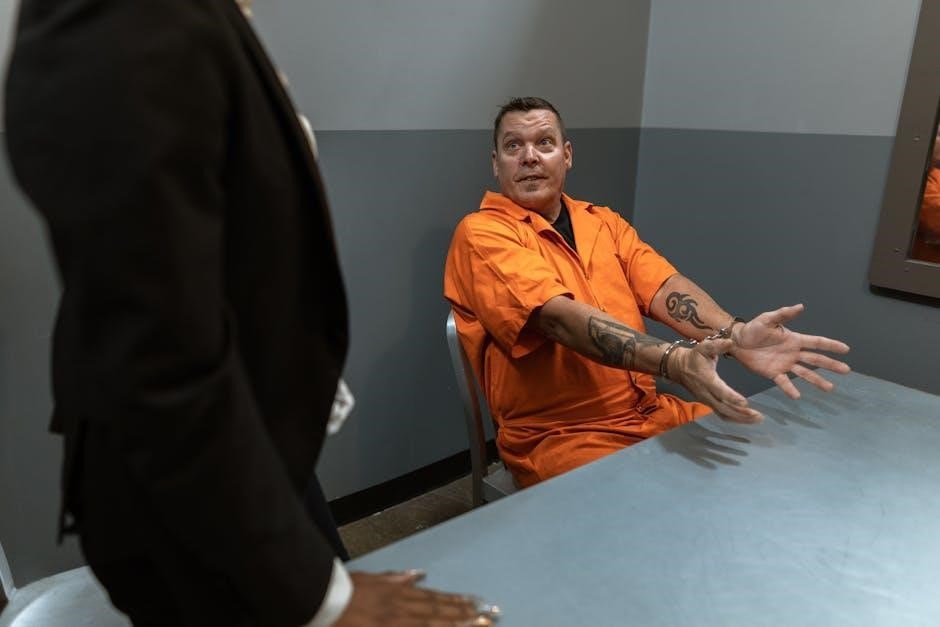
What to Wear and Bring to the Interview
Dress professionally and bring all required documents, including your passport, I-20, financial proofs, and appointment letter. A polished appearance and organized papers demonstrate preparedness and seriousness.
Dress Code for the Visa Interview
When attending an F1 visa interview, it is essential to present yourself professionally. Dressing appropriately shows respect for the process and creates a positive first impression. Opt for formal or business casual attire, such as a suit, tie, or modest clothing, depending on your cultural preferences. Avoid casual or overly flashy outfits, as they may detract from the seriousness of the occasion.
Ensure your appearance is clean and well-groomed. Pay attention to details like polished shoes, minimal jewelry, and neutral colors. This professional approach demonstrates maturity and readiness to embrace the responsibilities of studying abroad. Your attire should reflect confidence and sincerity, aligning with the expectations of a visa officer.
Essential Documents to Carry
When attending your F1 visa interview, it is crucial to bring all required documents to ensure a smooth process. These include your passport, I-20 form, SEVIS fee receipt, admission letter, financial documents (bank statements, scholarships, or sponsor letters), and proof of ties to your home country. Additional documents like academic transcripts, test scores (TOEFL, SAT, GRE), and a copy of your DS-160 confirmation page are also necessary.
Organize your documents neatly and be prepared to present them when asked. Having all paperwork in order demonstrates responsibility and preparation, which can positively influence the visa officer’s decision. Double-check the list of required documents provided by the embassy or consulate to avoid missing anything important.

Common Mistakes to Avoid During the Interview
Common mistakes include lack of preparation, inconsistent information, and financial discrepancies. These errors can hinder approval, so careful planning and honesty are crucial.
Lack of Preparation
Lack of Preparation
Lack of preparation is a common pitfall during F1 visa interviews. Applicants who fail to research the college, review their documents, or practice answers may appear disorganized or unserious. Visa officers expect detailed knowledge of the program, clear academic goals, and financial plans. Without preparation, candidates risk providing vague or inconsistent responses, raising doubts about their intentions. It’s essential to thoroughly review all documents, including I-20 forms and financial statements, and anticipate questions about career plans and ties to the home country. Mock interviews can help build confidence and ensure readiness. Being unprepared not only wastes an opportunity but also increases the likelihood of denial, making thorough preparation indispensable for a successful outcome.
Inconsistent or Misleading Information
Inconsistent or Misleading Information
Inconsistent or misleading information during an F1 visa interview can significantly harm an applicant’s chances of approval. Visa officers carefully cross-reference the information provided in documents, such as the I-20, financial statements, and the DS-160 form, with the answers given during the interview. Any discrepancies, whether intentional or accidental, may raise suspicions about the applicant’s credibility or true intentions. It’s crucial to ensure all details, such as academic history, financial sponsorship, and post-graduation plans, are accurate and align with the documentation. Applicants should triple-check their information and avoid exaggerations or omissions. Providing false or conflicting details can lead to immediate denial or future complications, making honesty and consistency essential for a successful interview.
Financial Discrepancies
Financial Discrepancies
Financial discrepancies are a common issue that can lead to F1 visa denials. Visa officers scrutinize applicants’ financial documents to ensure they meet the required funding for tuition, living expenses, and other costs. Inconsistencies between declared income, bank statements, or scholarship awards can raise concerns about the applicant’s ability to sustain themselves in the U.S. It’s essential to provide accurate, up-to-date financial records and clearly explain the sources of funding. Any unexplained changes in financial status or insufficient funds may result in rejection. Applicants must ensure all documents, including the I-20 form and financial affidavits, align perfectly to avoid raising red flags. Transparency and precision are critical to demonstrating financial stability and compliance with visa requirements.
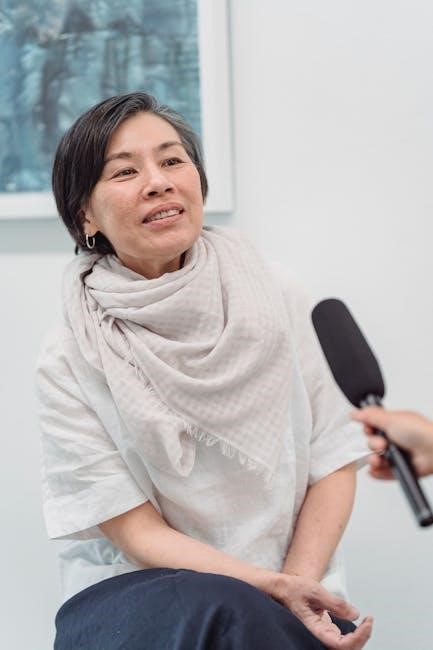
Follow-Up After the Interview
After the F1 visa interview, it’s crucial to monitor your application status and understand the next steps based on the outcome. Proper follow-up ensures timely resolution and preparation for your studies in the U.S.
What to Do If Approved
If your F1 visa is approved, you will receive your passport with the visa stamped. Pay the SEVIS fee and ensure your I-20 form is signed. Review your visa for accuracy, including your name, passport number, and expiration date; Plan your travel to the U.S., ensuring you arrive no more than 30 days before your program start date. Gather all necessary documents, such as your I-20, admission letter, and financial proofs, for entry into the U.S. Notify your school about your arrival plans and complete any required orientation or registration processes. Keep copies of your visa and I-20 for future reference.
What to Do If Denied
If your F1 visa application is denied, it’s important to understand the reasons provided by the visa officer. Common reasons include insufficient ties to your home country, unclear academic goals, or financial discrepancies. Review the denial letter carefully and address the specific issues. You may reapply by submitting a new application with updated documents that strengthen your case. Consider seeking advice from your school’s international office or a legal expert. Understand that a denial does not permanently bar you from reapplying. Gather additional evidence to demonstrate stronger ties to your home country and ensure all financial documents are accurate and up-to-date. Persistence and proper preparation can improve your chances of approval in future attempts.
What to Do If Delayed
If your F1 visa processing is delayed, remain calm and avoid making travel arrangements until your status is confirmed. Check your email and the embassy’s website regularly for updates. If no communication is received, consider reaching out to the embassy or consulate for clarification. Delays often occur due to administrative processing or incomplete documentation. Ensure all required documents are submitted and verify that your SEVIS fee is paid. If the delay persists, contact your university to inform them of the situation, as they may offer support or deadline extensions. Keep all communication records and follow up politely but persistently to resolve the issue. Remember, delays are common, but proactive communication can help expedite the process.
This comprehensive guide equips applicants with essential strategies and insights, emphasizing thorough preparation and sincerity to enhance their chances of a successful F1 visa interview experience.
Staying Confident and Honest
Confidence and honesty are crucial during the F1 visa interview. Being well-prepared helps maintain calmness, allowing applicants to present their case clearly. It’s essential to be truthful about academic intentions, financial stability, and post-graduation plans. Visa officers appreciate sincerity, as it builds trust and credibility. Avoid exaggerations or misrepresentations, as inconsistencies can lead to denial. Practicing answers beforehand ensures a natural and confident delivery. Maintaining eye contact and a firm handshake can also convey self-assurance. Honesty fosters a positive impression, increasing the likelihood of approval. Remember, confidence stems from thorough preparation and a genuine understanding of one’s goals and circumstances.
Maximizing Chances of Approval
To maximize the chances of F1 visa approval, it’s essential to demonstrate a clear understanding of the program and long-term goals. Applicants should thoroughly research their chosen institution and program, showcasing how it aligns with their academic and career aspirations. Providing detailed financial documentation, such as bank statements and sponsorship letters, ensures transparency and stability. Highlighting strong ties to the home country, like family or employment opportunities, reinforces intent to return post-graduation. Being prepared to articulate how the program will benefit future plans can significantly enhance credibility. A well-organized presentation of documents and confident responses to questions further strengthen the application.
